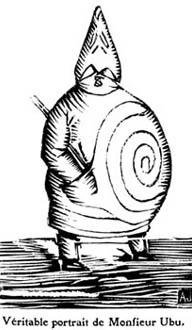"The sum of human wisdom is not contained in any one language, and no single language is CAPABLE of expressing all forms and degrees of human comprehension." -Ezra Pound
Rodrigo Toscano and Kristin Prevallet
In dialogue with students from the Evergreen State College.
by Sally Zebrick
Toscano: musical but also chittering, chattering nonsense. Birdsong. Bird clicks and whistles and chittering, chattering nonsense.
Before he spoke at all I noticed that he has a smoothly lined face, an aura of sensitive authority like Barack Obama. Funny because he parodied Barack Obama later on in the evening. Same smooth and deliberate articulation. I wonder if he notices the inherent similarities (outside of mimick), and if so, does he play them down or up? I'm guessing yes and up, if he touches them at all.
Toscano selectively mirrors what he sees and hears in the world (Prevallet is more personal). He performed "subject line subscribe (society)" and "Relay Alpha Bravo Charlie" from To Leveling Swerve along with some newer pieces from a notebook. The meaning is in the words except when the meaning is in the sounds--"feel feel" becomes an air compressor whisper, for example, rather than an injunction to emotion, while the pneumatic hiss, the barrage of media/technology stimuli themselves become an edict of feeling.
Toscano understands the eloquence of the gesture. Just as interesting as the poetry was the question and answer session that followed. Inspiration from other poets rather than possession (cf. Prevallet) is stop stop stop to his go go go. You must see him marching across the stage and then slowing, struggling, marching in place as he feels the opposing force (equal and opposite) pushing on his shoulder. His stride is thus checked, his rhythm modified. Interest in power as he draws attention to the relationship between performer and audience: who has the power to leave? who has the authority to declare an end?
Prevallet: Has been possessed by H.D. (see her collected works), and this possession has transformed her writing just as everything that influences us transforms us, moment to moment and day to day. She spoke of learning to respect the stage. Her words and her manner reveal a continuing discomfort on the stage. It is an alien environment to her, and though she does not seem to fear it, she has only memorized the polite phrases (renting a car, ordering a meal, requesting assistance, and so on) and after reading what she has come to read (note: read rather than perform), she is ready to leave.
Prevallet is also a teacher, by the way. Her preface to Elegy probably had more to do with a lecture on the theory of form, but it sounded like an apologetic for the use of evolving structure (poem, diary, essay) in her piece. Perhaps Prevallet has been possessed by Barbara Guest but is fighting it. Barbara Guest said, "When the poem is on its feet, to leave it alone to express its own person." She remarked on the "tension between the poem and the poet." The very notion that the form of Elegy should be dictated by custom rather than content evidences Prevallet's desire for control. The defiance of this suggestion evidences the voice of the poem itself.
On the page versus the stage: Prevallet chose to share part of her translation of the work of an African playwright. Involving Toscano in the reading was a mistake, as he attempted to commandeer the stage to enhance the sound and visual over the meaning of the words being conveyed. The result was distraction, the interplay between Toscano and Prevallet a disruption of the audience's attention from their glimpse at neo-colonial satire. Toscano first violated Prevallet's instruction (I stand here and you stand there, and thus we create dual directions of sound) and then proceeded to make incursions into Prevallet's stage, microphone, and personal space, while Prevallet seemed unable or unwilling to engage him in a similarly dynamic turf war/performance. A straight read would have been much less awkward, but in Toscano's defense a straight read would still have failed to even begin to do justice to a surreal, absurdist comedy that demands performance and regal spectacle.
On Prevallet and authority: Elegy contains a passage about a shrine. The shrine is a physical manifestation of the continual and continually changing presence of grief. Many objects make up the shrine, are always changing. Some mean something; some mean nothing. Prevallet cites an expert on grief who says that one must destroy such shrines in order to move toward closure. Prevallet constructs this shrine in defiance of this authority. Defiance is acknowledgement and subverted respect for authority.
Note that Toscano draws more attention to himself, but Prevallet conveys more meaning.
